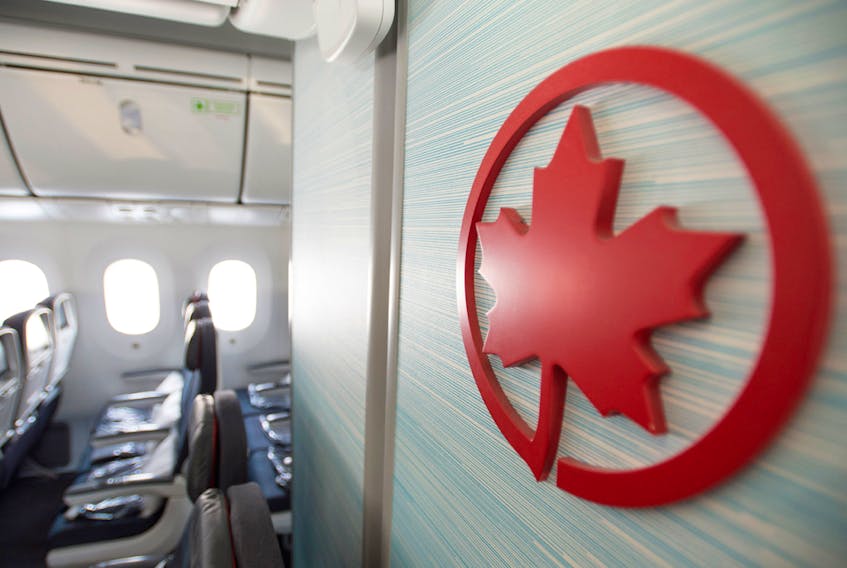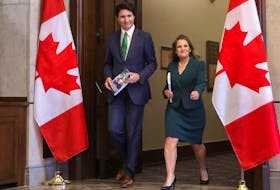Air Canada will have fewer seats available than expected in its busy summer season thanks to the prolonged grounding of the Boeing 737 Max fleet, a capacity crunch that executives said will dampen earnings growth in the third quarter.
Canada’s largest airline said Tuesday it removed the Boeing 737 Max aircraft from its schedule until January to give passengers more certainty when booking holiday travel, as it remains unclear when regulators will re-approve the aircraft for service following two crashes that killed 346 people. Southwest Airlines Co. has also erased the jets from its timetable until 2020.
While Air Canada reported a second-quarter profit that beat analysts’ expectations despite the operational frustrations from parking its 24 Max jets, the airline will feel the grounding more acutely in the next quarter, chief executive Calin Rovinescu said on a conference call with analysts.
“We expect it to be good, but not as good as it would have been,” Rovinescu said.
The Montreal-based airline will only be able to cover 95 per cent of its planned capacity in the third quarter, with overall capacity slated to dip 2 per cent instead of a previously expected rise of 3 per cent. Adjusted earnings are expected to grow by 5 per cent, less than previously anticipated.
So far, Canada’s largest airline has largely absorbed the removal of 11,000 seats per day from its schedule by contracting additional capacity from other carriers, extending short-term leases for aircraft that it previously planned to retire, delaying non-essential maintenance and suspending some routes. It was able to cover 97 per cent of planned capacity in the second quarter.
But it’s not an option to delay paint jobs or Wi-Fi upgrades in the next period when the airline normally operates at full capacity, Rovinescu said. The crunch is more severe since Air Canada had expected to add 12 more Max jets to its fleet by July.
The airline would not reveal how much the grounding cost it or details about its negotiations with Boeing surrounding compensation. Earlier this month, Boeing said it would take a US$5.6-billion charge to compensate customers around the world.
“We’re anticipating they will do the right thing,” Rovinescu said.
Once recertified, it will take Air Canada two to three months to return its 24 planes to the sky. The delivery schedule for the remaining jets is unclear – on top of the dozen it was supposed to receive in July, and 14 more in the first half of 2020 – but Air Canada expects it to take up to a year to get all 50 planes operational since it needs to hire an additional 400 pilots and flight crews.
The groundings have been “extremely frustrating” to manage in the short-term, chief financial officer Michael Rousseau said on the call, adding Air Canada never encountered any issues with the Max fleet before the crashes.
“Ideally, we are still looking forward to the return to service,” Rousseau said.
Air Canada will continue to support Boeing despite the issues with the Max fleet, the executives said. It has a strong relationship with both Boeing and Airbus, Rovinescu said, adding it has a “fairly good split” and will continue to support both.
Rovinescu also confirmed that Air Canada plans to keep both the Air Transat brand and Rouge in the early stages if its $520-million deal to buy Transat A.T. is approved by regulators.
“Transat has built a very, very good brand in the leisure market,” he said.
Air Canada’s stock price rose 3.5 per cent to $46.69 at Tuesday close. National Bank analyst Cameron Doerksen increased his price target to $55 after the results beat expectations.
“While the ongoing 737 MAX grounding will continue to impact costs in the coming quarters, demand for air travel and pricing trends remain supportive,” Doerksen wrote to clients, noting the potential upside of the Transat deal.
“We believe that if the deal is closed it will be positive for Air Canada with significant potential revenue and cost synergies over time.”
Air Canada reported adjusted earnings per share of 88 cents, up from 47 cents in the same period last year. Revenue per available seat mile, an important industry metric, increased 8.1 per cent.
• Email: [email protected] | Twitter: theemilyjackson
Copyright Postmedia Network Inc., 2019








